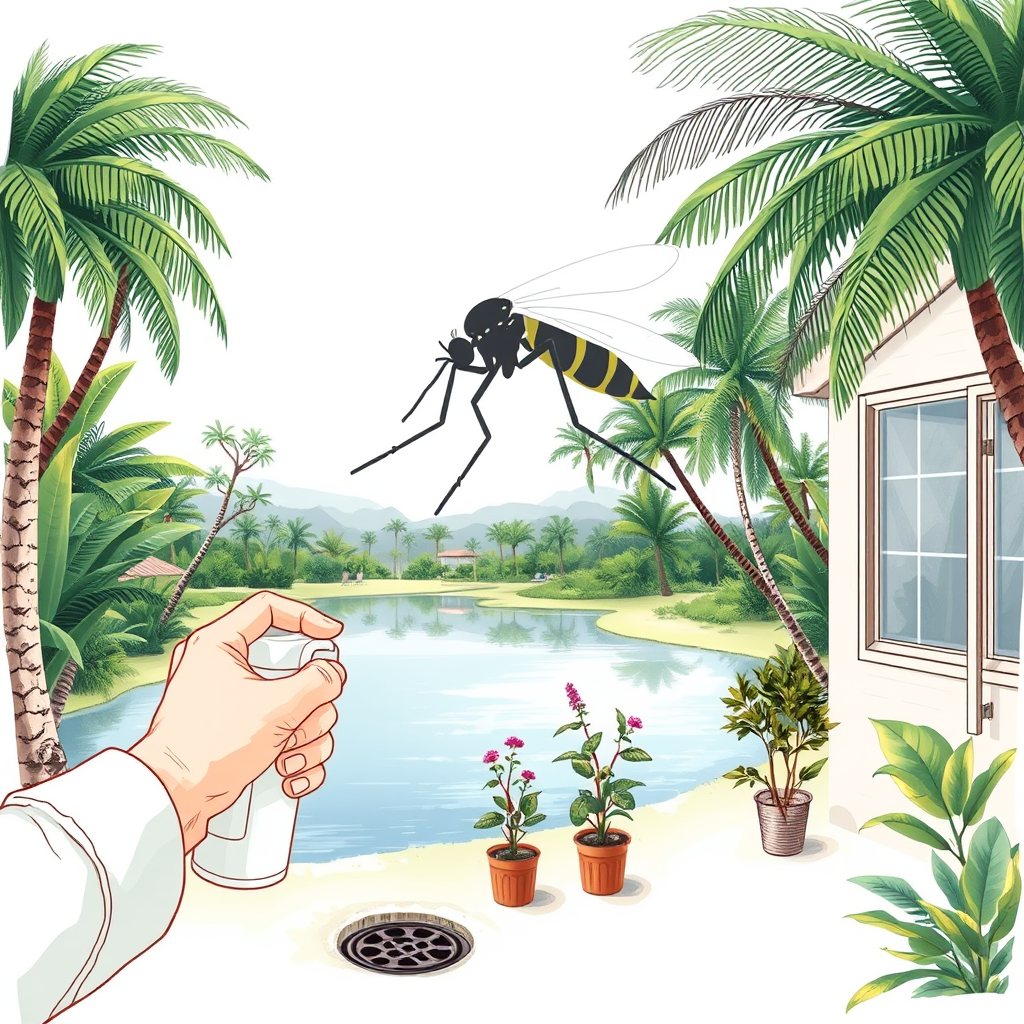Tropical Mosquitoes: How to Reclaim Your Paradise

Mosquitoes pose a significant public health challenge in tropical climates, disrupting idyllic landscapes with both irritating bites and the potential transmission of deadly diseases. Understanding these pests – their biology, behavior, and preferred breeding grounds – is the first step toward effective control. Female mosquitoes, driven by the need for blood to produce eggs, are particularly attracted to carbon dioxide, body heat, and specific human scents. They lay their eggs in stagnant water sources, from clogged gutters to small puddles collected in leaves.
Prevention remains the most effective strategy. Eliminating standing water is paramount – regularly emptying containers, maintaining gutters, and ensuring proper drainage. Landscape maintenance also plays a crucial role; short grass and weed control minimize resting areas for adult mosquitoes. Incorporating mosquito-repelling plants like citronella, marigolds, and lavender can offer a natural deterrent, while properly fitted screens on windows and doors provide a physical barrier. For outdoor areas lacking screens, treated mosquito nets offer nighttime protection.
Personal protection measures are also vital. The Centers for Disease Control and Prevention (CDC) recommends using EPA-registered insect repellents containing DEET, picaridin, oil of lemon eucalyptus, or other proven active ingredients. Wearing long sleeves, pants, and light-colored clothing when outdoors, particularly during peak mosquito activity in the early morning and evening, can further reduce the risk of bites.
When prevention isn’t enough, targeted control measures can help. Larvicides, applied to standing water, effectively kill mosquito larvae before they mature. Adulticides, used as sprays or fogs, target adult mosquitoes, but should be used cautiously to minimize harm to beneficial insects. Innovative approaches, such as introducing goats to ponds as natural predators, are also being explored. Various mosquito traps utilizing light, CO2, or attractants offer another control option.
Community-wide initiatives are essential for sustained mosquito control in tropical regions. Public education campaigns can empower residents to identify and eliminate breeding sites. Environmental clean-up efforts, focusing on waste management and habitat restoration, can reduce mosquito populations. Synchronized spraying programs, implemented during peak season, can provide temporary relief.
Successfully managing mosquitoes requires a consistent, multi-faceted approach. Regular implementation of preventative measures, coupled with personal protection and targeted control technologies, is crucial. Staying informed about the latest advancements in mosquito control is also vital. For areas facing severe mosquito problems, consulting with pest control professionals for effective, targeted treatments is highly recommended.
While the fight against mosquitoes is ongoing, a proactive and collaborative approach can significantly reduce the risk of bites and disease transmission, allowing residents of tropical climates to enjoy a healthier and more peaceful environment. It’s a constant battle, but one worth fighting for the well-being of communities and the preservation of these beautiful ecosystems.